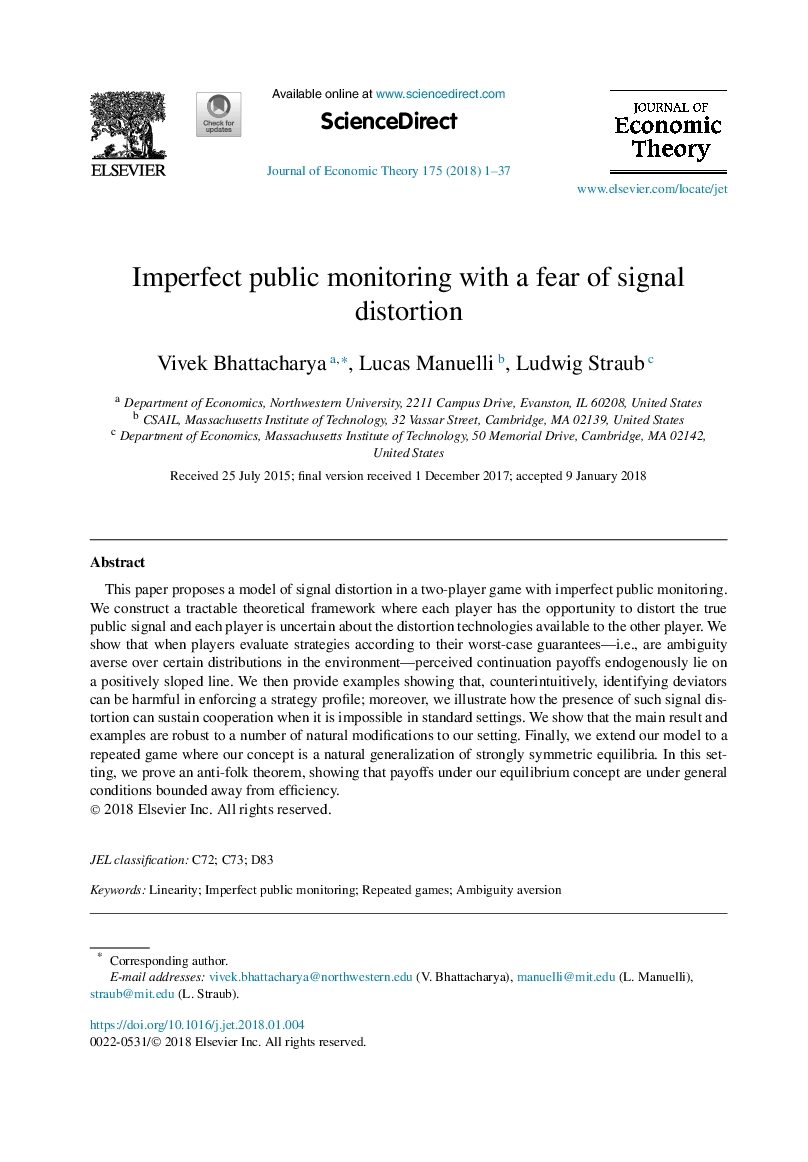| Article ID | Journal | Published Year | Pages | File Type |
|---|---|---|---|---|
| 7359145 | Journal of Economic Theory | 2018 | 37 Pages |
Abstract
This paper proposes a model of signal distortion in a two-player game with imperfect public monitoring. We construct a tractable theoretical framework where each player has the opportunity to distort the true public signal and each player is uncertain about the distortion technologies available to the other player. We show that when players evaluate strategies according to their worst-case guarantees-i.e., are ambiguity averse over certain distributions in the environment-perceived continuation payoffs endogenously lie on a positively sloped line. We then provide examples showing that, counterintuitively, identifying deviators can be harmful in enforcing a strategy profile; moreover, we illustrate how the presence of such signal distortion can sustain cooperation when it is impossible in standard settings. We show that the main result and examples are robust to a number of natural modifications to our setting. Finally, we extend our model to a repeated game where our concept is a natural generalization of strongly symmetric equilibria. In this setting, we prove an anti-folk theorem, showing that payoffs under our equilibrium concept are under general conditions bounded away from efficiency.
Related Topics
Social Sciences and Humanities
Economics, Econometrics and Finance
Economics and Econometrics
Authors
Vivek Bhattacharya, Lucas Manuelli, Ludwig Straub,
